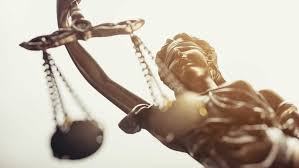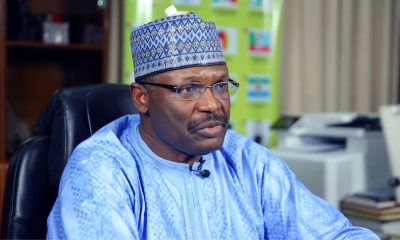Opinion
The Injustice Of Delayed Justice
Pre-trial detention commonly referred to as awaiting trial in Nigeria is an evil that has continued to destroy thousands of lives globally. The data made available by the Nigerian Correction Service (NCS), indicates that as at October 2021, the number of awaiting trial inmates in Nigeria is 74per cent, as compared to 38.2per cent in the US, 13.2per cent in Ghana, and 29.3per cent in South Africa. The implication of this revelation is that three out of every four inmates are awaiting trial; and until last week, Mr. Maxwell Dele was one of them. His release after 11 years of incarceration without trial and the associated back story have brought back the issues of awaiting trial and prison congestion to the table of public discussion.
The release of Mr. Maxwell Dele was facilitated by Advocates Sans Frontiere France (lawyers without borders). According to the story, he was tortured and compelled to sign a pre-written statement by the now disbanded, infamous SARS police unit, before being taken to court, and subsequently remanded for 11 years for a crime that his neighbour allegedly committed. He is just one person out of more than 36,000 inmates awaiting trial in Nigeria.
Mr Dele’s case is a vivid example of the fate of thousands of the less privileged in our society who find themselves on the wrong side of the law, either by commission, association, or being roped in by the pecuniary proclivities of the Nigerian police. These men and women, some of them innocent, but unfortunately unable to provide their own legal defence, have been denied the right to live like human beings; rights to personal freedom, liberty, and fair trial. These rights are provided for in articles (6) and (7) of the African Charter for Human and People’s Rights; and also, in sections 35 and 41 of the Constitution of the Federal Republic of Nigeria 1999, as amended.
It is quite unfortunate that, in spite of the awareness that the population of awaiting trial inmates is putting a strain on existing facilities, the government has refused to tackle the problem at the root. During President Jonathan’s administration, a committee led by John Odah gave a damning report that Nigerian prisons are unfit for human habitation, but nothing tangible was done to change the narrative. The current government’s idea is to expand correctional facilities in the country, by building seven 3000-capacity correctional facilities, one in the FCT, and one in each of the six geopolitical zones, starting from Kano in the North West and Rivers in the South South.
Building new correctional facilities is good; however, it does not solve the problem, since it does not make mathematical sense; because the number of awaiting trial inmates in Nigerian prisons is in excess of 36,000. If the FG erects seven new facilities of 3000 capacity each, giving a total additional capacity of 21,000, there is still a deficit of 15000, meaning that the problem of congestion remains.While policymakers continue to sleep-walk on the decisions that could speed up the wheel of justice, the plight of inmates, of which 74per cent are awaiting trial is deteriorating, and a good number of them are already damaged psychologically. Research sponsored by Carmelite Prisons’ Organisation, using the Raven’s Progressive Matrices, a general intelligence test, showed a significant cognitive decline rate that is faster among awaiting trial inmates relative to their convicted counterparts. This implies that the longer suspects remain in the limbo of pre-trial, the harder it might be for them to lead a normal life when they are eventually released.
The government at both the federal and state levels are completely responsible for the thousands of inmates languishing in Nigerian prisons without trial, and the first agency of government complicity in this evil is the police. They fill up the correctional facilities with mass and arbitrary arrests, tardy investigations, and wrong profiling of suspects.
Secondly, the delay or outright refusal of policymakers within the judiciary to expand the scope of the cases a magistrate could handle is a very huge contributor to the plague of awaiting trial cases; due to the fact that suspects would have to wait, sometimes indefinitely, for their cases to be reassigned for lack of jurisdiction. As a result, some of the inmates virtually do not exist in the judiciary system because of missing case files. As was the case of Sikiru Alade who was arrested in March 2003 when he was 30 years; and detained in Kirikiri Maximum Prison without trial for nine years. During the hearing for his release in 2012, the FG claimed he was never in their system, even when there was evidence to the contrary.
Thirdly, the illegal activities of wardens contribute in no small measure to the suffering of awaiting trial inmates. In one of my recent pieces, I made mention of the amount of humanitarian good done for Nigerians, in Nigeria by organisations from other nations, and today’s piece was occasioned by the fruits of the Labour of one of such groups, ASF France. It begs the question, what are Nigerians doing for Nigerians in this regard? What role has a major behemoth like the Nigerian Bar Association been playing to reduce or eradicate this plague? How often has the NBA in various states visited prison inmates, especially those awaiting trial for the purpose of assisting those in need? How many of their members actually schedule quarterly pro-bono services for those without the means to afford legal defence? With the thousands languishing in the almost infinite conveyor belt of awaiting trial, it is apparent that our legal men and women are missing in action in the service of the downtrodden.
Besides the NBA, the Church is mandated to visit those in prison; and I know there are various Churches and Christian organisations doing this. However, it is my belief, that this mandate goes beyond teaching the Bible and bringing relief to those in prisons. Christians also have the mandate of speaking for those who are unable to speak for themselves. In this regard, Christians, and especially so-called mega Churches with all the requisite resources to do this are failing even those in their local assemblies. Most Churches with legal teams are only activated to defend the Church and so-called ‘Men of God’; whereas, the Church’s legal capacity ought to be deployed in the defence of those without a means and voice. In as much as various interest groups, can, and should take steps geared towards alleviating the plights of thousands of inmates awaiting trial, the ultimate responsibility for repairing the damaged justice system lies squarely on the shoulders of the government. Government must begin to take concrete steps to set in motion those policies that would deal with the root cause of the ugly situation. Arbitrary and mass arrests and detention should be outlawed; magistrates and judges should be willing to toss tardy investigated cases.
The federal government should encourage other state governments to borrow a leaf from Lagos State, to implement a similar plea-bargain programme for awaiting trial inmates as a major avenue to curbing the menace. The Chief Justice of the Federation should also encourage State Chief Judges to routinely hold a monthly or quarterly session at major correctional facilities for the purpose of setting free inmates who have been incarcerated for more than four years, depending on the severity of the alleged crime. There are thousands of Maxwells and Sikirus languishing in correctional facilities across the country. Most of them have been emotionally and mentally damaged; most have been completely forgotten, yet they are compelled to live under conditions no human being should be subjected to. Sadly, some of them might be innocent. But no one deserves to go through such life wasting ordeal.
By: Raphael Pepple
Opinion
Humanity and Sun Worship

Opinion
When Global Peace Hangs In The East

Opinion
Balancing Religious Freedom and Community Rights

Quote:”Communities have rights to peace, safety, and quality of life. Noise pollution, crowds, or other impacts from religious activities can affect these rights. Balancing these interests requires consideration and dialogue”.
-
Politics1 day ago
2027: Bayelsa APC Adopts Tinubu As Sole Candidate … As Lokpobiri, Lyon Shun Meeting
-
Sports1 day ago
GOtv Boxing Night 34 holds Dec. in Lagos
-

 Politics1 day ago
Politics1 day agoAlleged Smear Campaign Against Yakubu, CSOs Demand Apology From Uzodimma
-
Politics1 day ago
2027: Jega Condemns Premature Campaigns, Blames Elected Officials
-
Politics1 day ago
Why INEC Can’t Punish Politicians For Early Campaigns – Yakubu
-
Sports1 day ago
WCQ: NFF Denies Post Match Statement
-
Politics1 day ago
Stopping Natasha’s Resumption Threatens Nigeria’s Democracy – ADC
-
Sports1 day ago
Gov. Decries Delta’s Poor Performance At 2025 NYG

